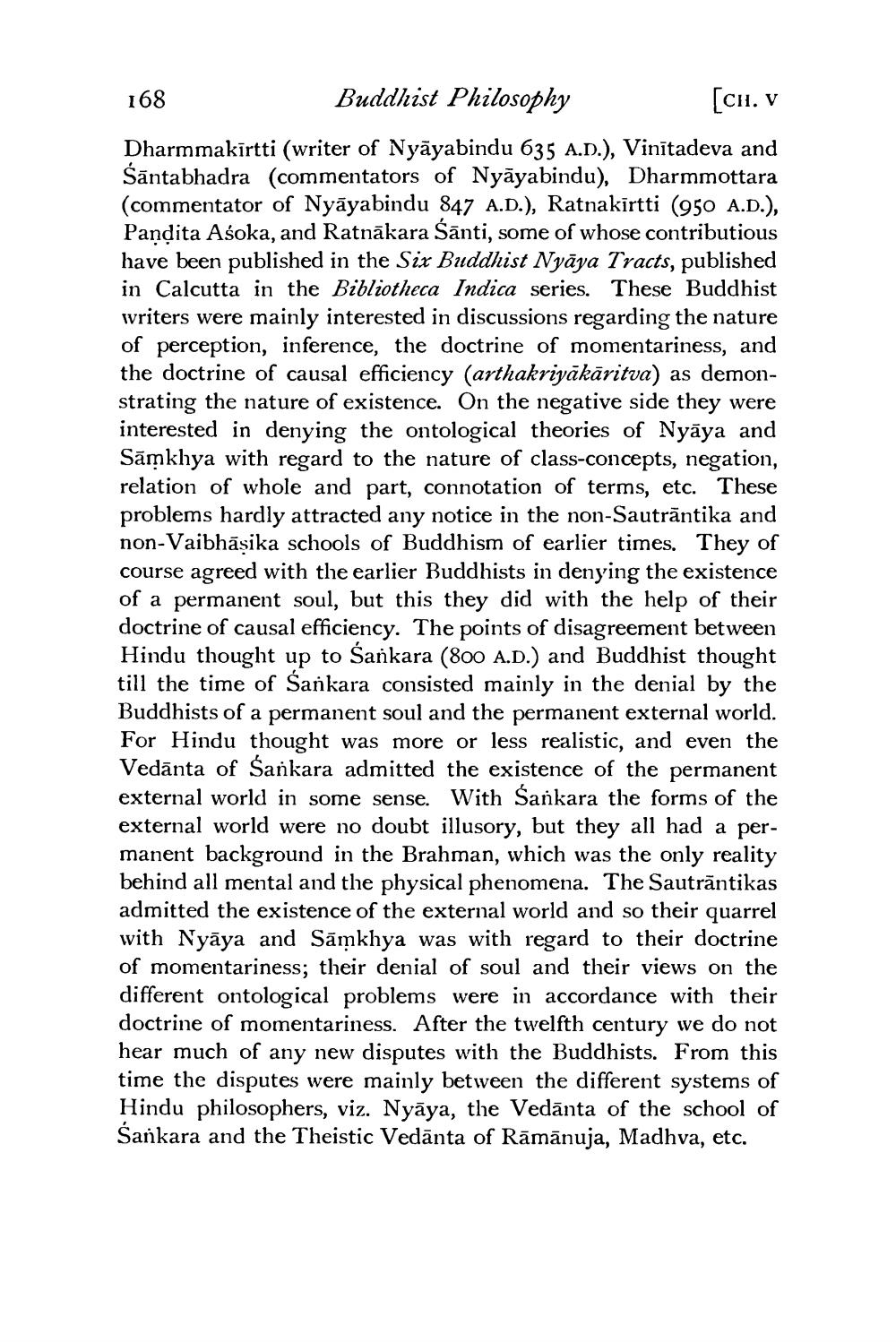________________
Buddhist Philosophy
[CH. V
Dharmmakirtti (writer of Nyāyabindu 635 A.D.), Vinītadeva and Śantabhadra (commentators of Nyāyabindu), Dharmmottara (commentator of Nyayabindu 847 A.D.), Ratnakīrtti (950 A.D.), Pandita Aśoka, and Ratnākara Śānti, some of whose contributious have been published in the Six Buddhist Nyaya Tracts, published in Calcutta in the Bibliotheca Indica series. These Buddhist writers were mainly interested in discussions regarding the nature of perception, inference, the doctrine of momentariness, and the doctrine of causal efficiency (arthakriyākāritva) as demonstrating the nature of existence. On the negative side they were interested in denying the ontological theories of Nyaya and Samkhya with regard to the nature of class-concepts, negation, relation of whole and part, connotation of terms, etc. These problems hardly attracted any notice in the non-Sauträntika and non-Vaibhāṣika schools of Buddhism of earlier times. They of course agreed with the earlier Buddhists in denying the existence of a permanent soul, but this they did with the help of their doctrine of causal efficiency. The points of disagreement between Hindu thought up to Śankara (800 A.D.) and Buddhist thought till the time of Sankara consisted mainly in the denial by the Buddhists of a permanent soul and the permanent external world. For Hindu thought was more or less realistic, and even the Vedanta of Sankara admitted the existence of the permanent external world in some sense. With Sankara the forms of the external world were no doubt illusory, but they all had a permanent background in the Brahman, which was the only reality behind all mental and the physical phenomena. The Sautrāntikas admitted the existence of the external world and so their quarrel with Nyaya and Samkhya was with regard to their doctrine of momentariness; their denial of soul and their views on the different ontological problems were in accordance with their doctrine of momentariness. After the twelfth century we do not hear much of any new disputes with the Buddhists. From this time the disputes were mainly between the different systems of Hindu philosophers, viz. Nyāya, the Vedanta of the school of Sankara and the Theistic Vedanta of Rāmānuja, Madhva, etc.
168




